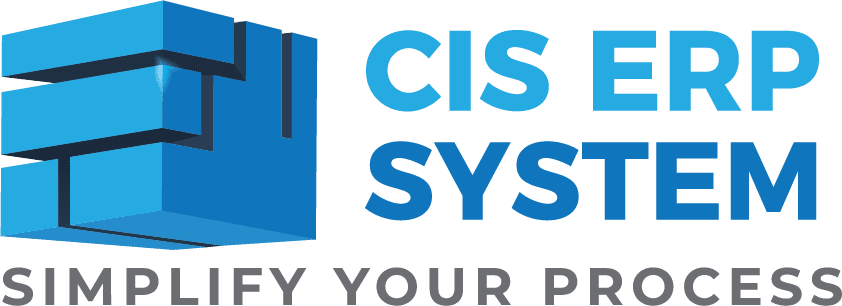Operating a logistics business isn’t just about moving packages, it’s about moving your whole industry forward. When you’re dealing with tight delivery windows, fluctuating demand, and rising costs, stress levels can hit the roof. You need more than tracking numbers and spreadsheets. You need control, clarity, and calm. That’s where ERP for logistics industry steps in.
It goes far beyond simple tracking, it connects every part of your operation, from warehouse to delivery truck, in one smart system. And here’s the best part: you can run your business from anywhere. Whether you’re in the office or on the road, everything you need is right at your fingertips. Let’s explore how this decisive tool can change the way logistics companies work forever.
What Is ERP for the Logistics Industry?
An ERP for logistics industry connects your inventory, orders, fleet, finances, and customers in one easy-to-use system. It replaces multiple tools with one centralized dashboard. No more jumping between tabs or waiting for updates. Everything stays synced in real time.
From incoming shipments to order fulfillment and dispatch, logistics ERP systems help you plan smarter, act faster, and reduce errors.
Real Benefits That Make a Difference
Let’s talk results. Here’s what the right ERP can unlock for your logistics business:
1. Greater Visibility and Control
No more guesswork. You’ll see your entire operation clearly from inventory levels to shipment status. You can spot delays, reroute drivers, and update customers in real time.
2. Improved Efficiency
Manual processes slow you down. With ERP, you can automate order processing, billing, and routing, freeing up your team to focus on what matters most.
3. Cost Savings
Lower fuel usage. Less paper. Fewer mistakes. ERP for logistics industry helps you find and fix hidden expenses, so you can protect your bottom line without cutting corners.
4. Happier Customers
On-time deliveries and accurate updates build trust. And with instant access to customer history and preferences, you can offer better, faster service every time.
What Makes Logistics ERP Different?
Most ERP systems are built to support general business operations such as HR, finance, and basic inventory. And they do that well. But logistics ERP systems take it a step further. They’re built specifically for the complex, fast-moving nature of logistics.
Think about what your day looks like: tracking dozens (or hundreds) of shipments, planning delivery routes, managing returns, keeping an eye on warehouse capacity, and answering customer calls all at once. A general ERP can’t handle all of that in real time.
It gives you features tailored to the logistics industry’s unique challenges, like:
- Route and delivery planning that adjusts based on live traffic or shipment delays.
- Fleet tracking that shows where your trucks are, their fuel usage, and maintenance needs.
- Real-time order management with instant inventory updates across every location.
- Warehouse coordination so stock gets stored, picked, and shipped with minimal delay.
It’s not just about keeping operations running, it’s about optimizing them. A logistics ERP system becomes the nerve center of your business, making sure nothing falls through the cracks.
Smarter Inventory and Warehouse Management
Inventory isn’t just numbers, it’s your product, your revenue, and your reputation on the line. With logistics management software, you no longer have to rely on guesswork or outdated spreadsheets. Instead, your system gives you a live view of every product, in every warehouse, at every stage. It tracks quantities, expiration dates, storage locations, and order demand down to the last unit.
- Monitor stock across locations with a single dashboard.
- Transfer inventory between warehouses based on demand and delivery zones.
- Set alerts for low stock or high turnover items.
- Assign warehouse zones to optimize picking routes and reduce loading times.
It also helps forecast future inventory needs using past sales and seasonal trends. That means fewer stockouts, faster fulfillment, and lower holding costs. Your warehouse becomes smarter, faster, and more profitable—without hiring more people or adding more hours.
How ERP Supports Growth
Growth should feel exciting, not overwhelming. But without the right systems in place, scaling can create chaos.
ERP for logistics industry makes scaling simple. It’s flexible by design. Whether you’re opening a new warehouse, launching a new product line, or expanding into another country, your ERP keeps up.
You can:
- Onboard new drivers or vendors without disrupting current operations
- Add new service areas and update routing logic in minutes.
- Support multiple currencies, languages, and tax rules for global operations.
- Track KPIs like delivery speed, inventory turnover, and route efficiency in real-time
Moreover, as your logistics processes become more complex, your ERP grows with you, eliminating the need to patch together third-party apps or start from scratch. Everything stays connected, from supply chain to last-mile delivery. That means you spend less time managing tools, and more time growing your business.
Compliance and Accuracy You Can Trust
Logistics companies face constant pressure to comply with regulations, customs documentation, safety checks, audit trails, and trade restrictions. Missing even one detail can lead to shipment delays, fines, or lost contracts.
With built-in compliance features, your ERP helps you:
- Store legal documents securely for every shipment or partner.
- Create complete audit trails that show who did what, and when.
- Ensure data accuracy across invoices, packing slips, and customs forms.
- Keep up with evolving global regulations by updating settings centrally.
Instead of chasing down paperwork or worrying about surprise inspections, your team stays focused on operations knowing the system has compliance covered.
One System. Every Function. Seamlessly Connected.
Think of all the tools you use—TMS, CRM, spreadsheets, inventory apps, driver logs. Now imagine all of them talking to each other.
That’s the ability of an ERP for logistics industry.
It connects with:
- Transportation management systems to plan routes, load trucks, and track costs.
- CRM software to sync customer preferences and service records.
- IoT devices like smart containers, scanners, and mobile GPS for real-time data.
- Mobile apps so your team can update orders, scan inventory, and upload documents on the go.
Conclusion
ERP for logistics industry does more than track; it transforms how you run your business. It saves money, boosts customer trust, and makes your daily operations smoother and brighter. The future of logistics is connected, and ERP is your key to getting there.

